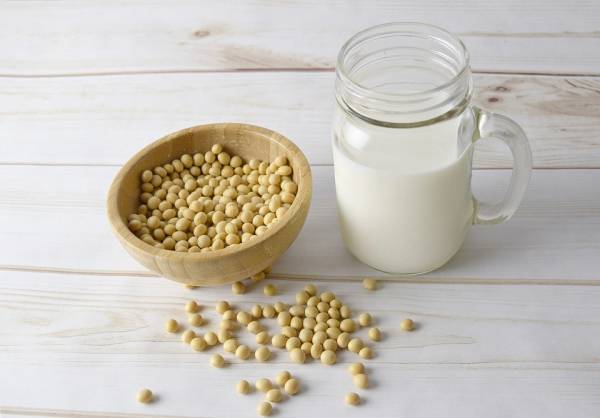
We will discuss the most popular types of vegetable milk and their impact on the human body.
Almond milk

Photo: pixabay.com
Advantages: Like cow’s milk, it contains vitamins E and A, but it has a low calorie and fat content.
Disadvantages: Almond milk includes very little protein. And sweetened varieties overload the body with unnecessary sugar.
Milk from cashew nuts

Advantages: Like almond, cashew milk is low in calories and fat. Additionally, some manufacturers enrich it with calcium and vitamins D and B12.
Disadvantages: This milk is quite expensive.
Rice milk

Photo: pixabay.com
Benefits: Rice milk is an excellent source of b vitamins and magnesium. Due to the high content of carbohydrates it helps to recharge your batteries.
Disadvantages: Rice contains a large amount of starch, so it can cause a spike in blood sugar, making rice milk is unsuitable for diabetics. If you suffer from diabetes, drink cow, soy or almond milk.
Coconut milk

Photo: pixabay.com
Benefits: Coconut milk is rich in vitamins, iron and fiber. Although high in calories, experts say that it helps speed up the metabolism.
Disadvantages: Thick texture of coconut milk is more suitable for cooking than for drinking.
Soy milk

Photo: pixabay.com
Benefits: Soy milk contains almost as much protein as cow’s, but it has a smaller amount of sugar. It comprises phytoestrogens, which helps the absorption of calcium.
Disadvantages: Scientists believe that such milk leads to an imbalance of sex hormones and negatively affects the fertility and menstrual cycle. Therefore it is necessary to restrict its use.
SEE ALSO
- The useful benefits of soy milk







